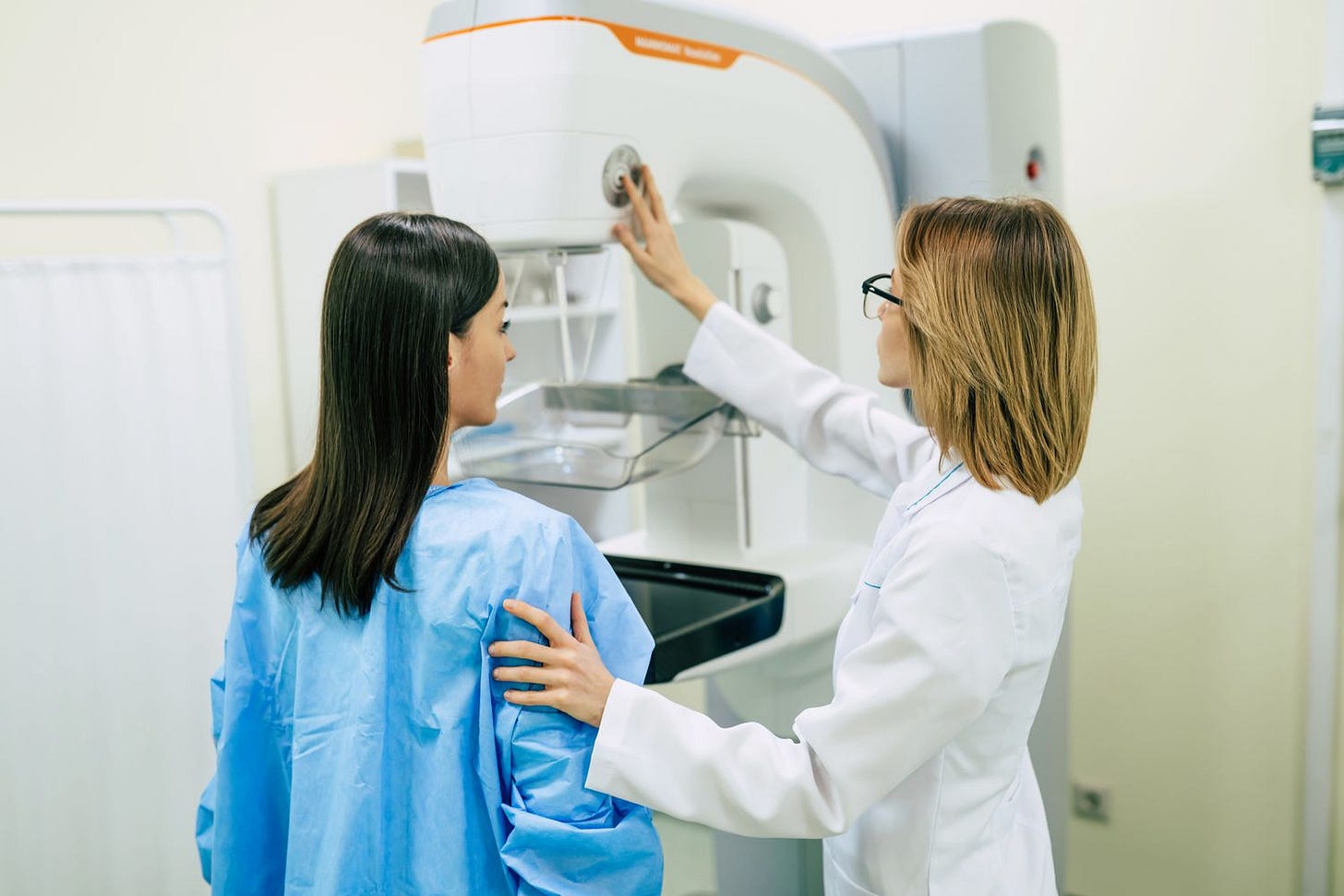How mammography screening exposes public health blind spots
Public health thrives on simple slogans, but the evidence tells another story. Billions are spent on interventions that fail the only test that matters — keeping people alive longer.
Public health has a long history of issuing sweeping directives with absolute certainty. Mammography screening is one of them. For decades, women have been told that early screening “saves lives.”
A recent BMJ editorial repeated that claim, declaring that mammograms “can detect breast cancer early, often before a lump can be felt,” and urging women to view their first screening appointment as “a long-term investment in breast health and survival.”
“The message is clear,” wrote the author, Zhen-qiang Ma, “participating in early mammography screening can have a lasting benefit.”
It sounds simple and reassuring—almost obvious. Find cancer early and treat it.
The editorial drew on a Swedish cohort study of more than 400,000 women, which found that those who skipped their first screening mammogram were more likely to miss future screens, present with advanced tumours, and die from breast cancer.
On the surface, that appears to be strong evidence in favour of screening. But a closer look shows the story doesn’t hold up under scrutiny.



